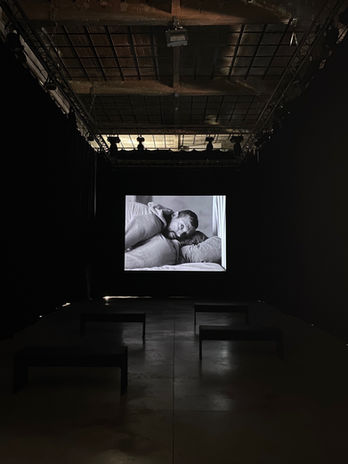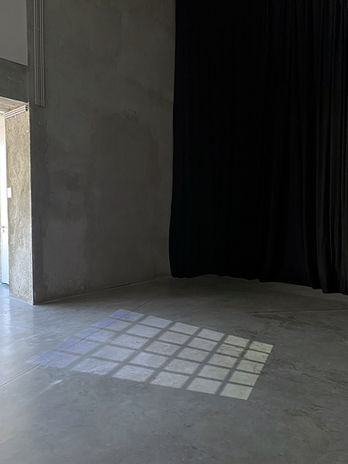Fossil :: James Newitt
Fossil :: JAMES NEWITT
July 19 - August 29
Thursday to Sunday | 12pm - 6pm
The film Fossil was commissioned by the Art Gallery of New South Wales in Sydney for the exhibition "The National 2019: New Australian Art" and was entirely filmed at the Carpintarias. It now premieres in Europe as an installation that runs through several spaces of the Cultural Center. On Floor 0, the film is fully projected in large dimensions and on Floor -1 an immersive installation is displayed, evoking the surroundings that led to Fossil.
Fossil is a short film that explores the memory lapses and language gaps of someone recovering from trauma. The film follows a series of tensions between two men, one older than the other. More affectionate than aggressive, although it is unclear how the two men are related, there is a co-dependency at play.
Short bio:
James Newitt (1981) lives between Lisbon and Hobart (Tasmania). A visual artist and filmmaker, Newitt has exhibited in group and solo shows in a variety of venues both in Australia and Europe.
He was awarded with international studio residencies in Los Angeles and Liverpool (UK) by the Australia Council for the Arts. In 2012, he received the prestigious Samstag scholarship to participate in the Maumaus Independent Study Program in Lisbon. In 2010, he won the City of Hobart Art Prize and in 2009 he was given the Qantas Foundation Encouragement of Contemporary Art Award. He has taught at the School of Creative Arts at the University of Tasmania, the University of New York's City, and the Tromsø Academy of Art in Norway.
--
4K 4:3, 22 mins, surround sound
Performers: Anton Skrzypiciel and Romeu Runa
Photography: Mário Melo Costa
Produced by: Anže Peršin, Stenar Projects
Sound: Bernardo Theriaga
Soundtrack and Mixing: Jon Smeathers
Production Assistant: Elise Paixão
This project was commissioned by the Art Gallery of New South Wales for the exhibition
"The National 2019: New Australian Art".
This project was assisted by Arts Tasmania by the Minister for the Arts.
This project was supported by Centro Cultural Carpintarias de São Lázaro, Lisbon.










